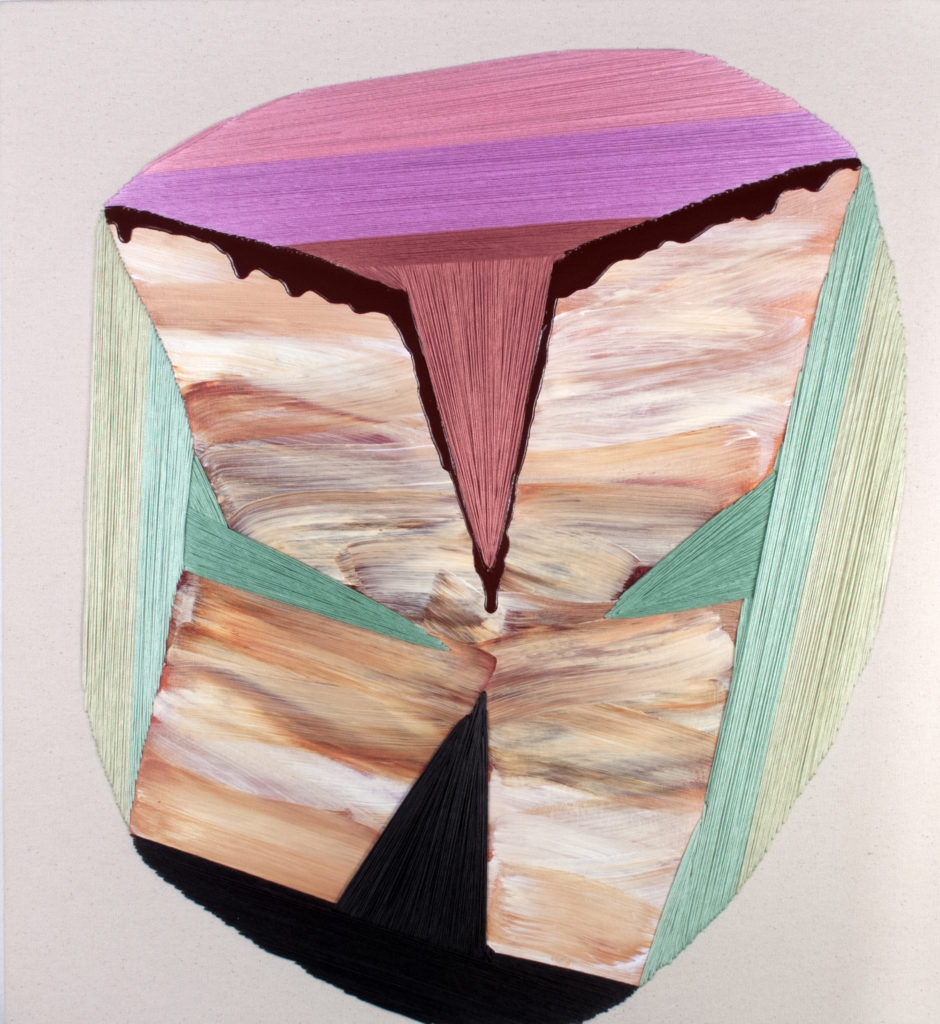that they are not men,
that they have not settled into their beards and
remorse, their crow’s feet and givens.
There is not yet an investment in houses
settling onto their foundations, hair, or
yesterday. The boy senses his time is precarious,
Under Current: Tidal Pull

Where do your shapes come from? This is a common question I encounter.
I dislodge shapes stored in my body through the act of drawing. These shapes originate from a vast matrix of experiences. There are typically three categories of overt reference: art and archeological objects I seek out through research and travel; landscape; and direct physical experiences (floating on a lake, running in the woods, dance, aging, sex).
Still Life with Black Boy’s Face Overlaying Project Buildings
Hall of Famer Frank Thomas, from 1990 to 2005,
hit 448 home runs over the fence for the White Sox
with the notorious Robert Taylor Homes standing just
beyond ballpark grounds across the Dan Ryan Expressway:
the high-rises, bruises against the city-flag-blue sky,
eyesores.
Daedalus in Oxyana
Was an emperor of element within the mountain’s hull,
chewing out the corridors of coal,
crafting my labyrinth as demanded.
My art: getting lost in the dark.
Philoctetes at the Physio
By U. S. DHUGA
No compunction, my physiotherapist
Exits, kale juice in hand, the Raw Chemist
With the swagger of a Neoptolemus
Who will lie to me, to you, to all of us
For the sake of winning what he mythifies
As our battle.
On Being Thirty-Six
after Philip Larkin
I feared these present years,
the mid-thirties,
when my receding hairline
became backed up
like rush-hour traffic on the Gulf Freeway,
& my man-boobs swelled
into Tig Ol’ Bitties.
What’s Goin’ On?
ca. 2008
On Marvin Gaye’s birthday, the D.J.
introduces “Sexual Healing” as the sole song
responsible for why some of his listeners exist.
If he & his wife were having trouble conceiving,
he would’ve skipped over the cliché
the way he skipped over the details
of Marvin’s tragic death, the way elders
can skip over real talk: like how, in their day,
producing classic records was as easy
as producing children.
On Ice
The dogwood makes a second
skin of winter rain.
The form’s the thing, the sky
is saying as it drains
our language of descriptors:
crystalline?
Passeggiata in Linguaglossa
I found the Cyclops and his Galatea
in their shop on Piano Provenanza.
They’d been domestic for a while.
I’d gone for his wildflowers and Ragabo pines.
I’d gone for the wintry July breezes that
dilute the sulfur of his neighborhood.
I’d gone to see the roughened lava of
his searching, the obsidian of his instant grief.
The Italian Lesson
By HONOR MOORE
To bind at last
the loose miscellany
a first love left
and shattered.
That summer
in Florence alone
she stepped
into the Bargello,
room of Donatello, of saints
given shape.










